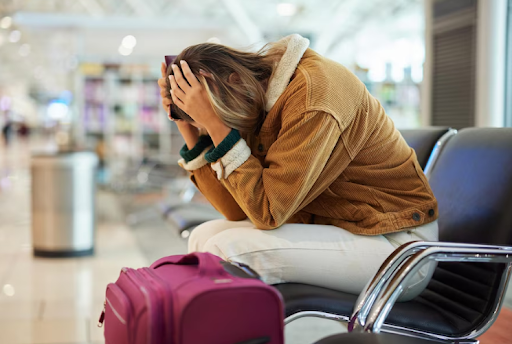Wings of Confidence: Elevate Your Travel Experience with Fear of Flying Courses

For many, the idea of air travel evokes a sense of excitement and adventure. However, for others, it can trigger feelings of anxiety and fear. The fear of flying, also known as aviophobia, affects a significant portion of the population and can be a significant barrier to enjoying the travel experience.
Fortunately, the fear of flying courses offers a pathway to overcoming this fear and reclaiming the joy of air travel. In this article, we’ll explore how these courses can elevate your travel experience and provide you with the wings of confidence to soar to new heights.
Understanding the Fear of Flying
Before delving into fear of flying courses, it’s essential to understand the nature of this fear and its impact on travelers. Fear of flying can manifest in various ways, including anxiety, panic attacks, and avoidance behaviors.
Common triggers may include turbulence, claustrophobia, fear of heights, or a lack of control. These fears can significantly diminish the travel experience, leading to stress, discomfort, and reluctance to embark on flights.
The Benefits of Fear of Flying Courses
Fear of Flying courses are designed to address the underlying causes of aviophobia and provide participants with the knowledge, and support needed to overcome their fear. Here are some ways in which these courses can elevate your travel experience:
Education and Understanding: Fear of flying courses typically include educational components that help participants understand the mechanics of flight, common safety procedures, and the principles of aviation. By demystifying the flying experience, participants can alleviate anxiety and feel more in control.
Exposure Therapy: Many fear of flying courses incorporate exposure therapy techniques, gradually exposing participants to the elements of air travel in a controlled and supportive environment. This exposure helps desensitize individuals to their fear triggers and build confidence over time.
Cognitive-Behavioral Techniques: Cognitive-behavioral therapy (CBT) is often used in fear of flying courses to challenge negative thought patterns and replace them with more adaptive beliefs and behaviors. Participants learn practical strategies for managing anxiety, such as relaxation techniques, mindfulness, and cognitive restructuring.
Simulated Flight Experiences: Some fear of flying courses offer simulated flight experiences, allowing participants to familiarize themselves with the sights, sounds, and sensations of air travel in a realistic setting. These simulations provide an opportunity for hands-on practice and gradual exposure to flight scenarios.
Peer Support and Community: Fear of flying courses provide a supportive environment where participants can connect with others who share similar experiences and challenges. Peer support and encouragement can be invaluable in overcoming fear and building confidence.
Choosing the Right Course
When it comes to selecting the right fear of flying course, several factors should be considered to ensure that the program meets your specific needs and preferences. Here’s an expanded look at what to consider when making this important decision:
Course Curriculum: Look for a course that offers a comprehensive curriculum designed to address the various aspects of fear of flying. This should include education on flight mechanics, safety procedures, and coping strategies for managing anxiety. A well-rounded curriculum ensures that you receive the knowledge and skills necessary to overcome your fear effectively.
Instructor Qualifications: Research the qualifications and expertise of the course instructors or facilitators. Ideally, instructors should have relevant experience in aviation, psychology, or counseling, as well as specialized training in fear of flying treatment. Their knowledge and guidance can significantly impact the effectiveness of the course.
Format and Delivery: Consider the format of the course and how it will be delivered. Some courses may be offered in-person, allowing for face-to-face interaction with instructors and fellow participants. Others may be conducted online, providing flexibility and accessibility for those unable to attend in person. Choose a format that aligns with your preferences and logistical constraints.
Duration and Intensity: Evaluate the duration and intensity of the course to ensure that it fits your schedule and comfort level. Some courses may be conducted over a single day or weekend, while others may span several weeks or months. Similarly, the intensity of the program may vary, with some courses offering a more immersive experience than others.
Cost and Value: Consider the cost of the course relative to the value it provides. While price is an important factor, it should not be the sole determining factor in your decision. Evaluate the overall value proposition of the course, including the quality of instruction, course materials, and additional support services offered.
Reviews and Testimonials: Research reviews and testimonials from past participants to gain insights into their experiences with the course. Pay attention to feedback regarding the effectiveness of the program, the expertise of the instructors, and the level of support provided. Positive reviews can instill confidence in the course’s ability to deliver results.
Additional Support Services: Inquire about any additional support services or resources offered as part of the course. This may include access to support groups, follow-up sessions, or online forums where you can connect with fellow participants and share experiences. These additional resources can enhance the effectiveness of the course and provide ongoing support as you progress in your journey to overcome fear of flying.
Conclusion
Fear of flying should not stand in the way of experiencing the wonders of air travel. Fear of flying courses offer a comprehensive and structured approach to overcoming aviophobia and regaining confidence in flying.
By addressing the underlying causes of fear, providing education and support, and offering practical strategies for managing anxiety, these courses empower participants to embark on flights with a sense of calm, control, and confidence.
If you’ve been hesitant to take to the skies due to fear of flying, consider enrolling in a fear of flying course. With the wings of confidence that these courses provide, you can elevate your travel experience and embrace the joy of exploring new destinations from above.



